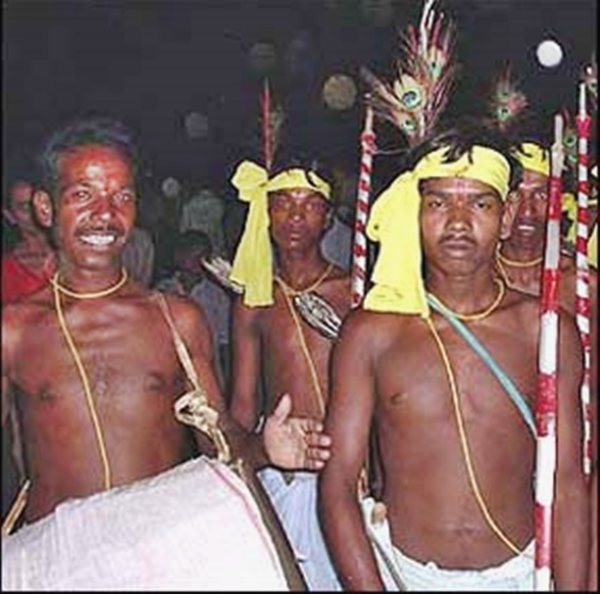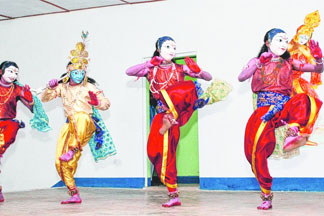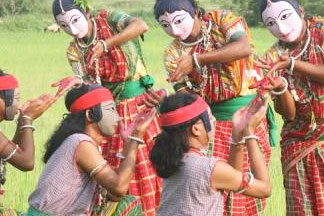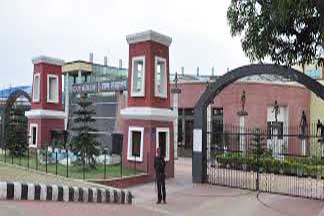KARMALI
Introduction: Karmali is an ancient and small tribe of Jharkhand. They are considered to be residents of this Chaitra since the Stone Age. Some scholars have considered Karmali as a branch of Munda, but because of the business of Luhari, Munda is considered as the lower star. Originally they are considered as separate communities from Munda and Santhal. Their language is Kurmali which some believe to be the dialect of the language. Karmali artisans are. Since ancient times, their ancestors made disrespect for Raja Maharaja. Bhadra Gov (Bokaro) is famous for iron equipments for centuries. This work was done by people of Karmali caste. It is said that the weapons for Sher Shah were made here. Some foreigners called this Goan as 'Saffield of Bihar'. Karmali is kept in the Proto-Arctrite species group. The characteristics of their physiological composition are small / backward stature, Krishnavarti skin, Madhyam Chauri nose, waving black hair, Medium lip, stomach body etc. which meet the Munda. There is a tradition of folk songs, folklore etc. from Karmali. Their songs have mamta and compassion and description of nature's makeup is available. There is a song for festivals. Reside: Karmali are found mainly in the districts of Hazaribagh, Santhal Paragana, Ranchi, Bokaro, singhbhum etc. Their villages are bases in wild-mountainous terrain. They often reside in the village. These nature lover, peace are of dear and innate nature. That is why they prefer staying in bases and villages in the remote mountains and forests. There is a habit of separating from conflict. This is an independent lover. Some Karmali meet in every village of Hazaribagh and Singhbhum.
Housing –
Village: They sit in a village village. Their home is commonly grown in soil. The roof is tile. The wooden pillars are used between the walls of the clay and thereby strengthening the house. Bamboo straps are laid down under the scrap. The doors are of wood which they make themselves. The house is rectangular. Oganes often do not have homes in homes. In some special houses Dhaba, patio and turn are seen. Pekki house is also aces - Dukki is found. There is a separate arrangement of kitchen space and devasthal (Sira Pirira) in the house. Gohal is also adjacent to the house. Usually animals are kept in the verandah of the house. There is a pig barn outside the fire or fire. The windows are not often in the house. In household utensils, such as sacks, machia, beds (benches) etc. and household items like soup, broom, mat, sarni, There are baskets of cloaks, loads, ants, scales, sites (chilohis), chhuris, karti utensils, hadi, tawa, pala, curts, pillars, baskets, tongs and aluminum etc. In agricultural equipments, Kodi, Khurpi, Hussanashava, Savar, Tangi, Par-Par, Zitti, Juath etc. are found in their homes. Luvar Giriropar is a traditional occupation. The common equipment of this industry is Bhathi, Naahi, Dhana, Radii, Chhini Hathori - Hathoda, Kuttapati, Panchu, Pehava Avi Takar, also found here. In addition to this, arrows, bow, sword, spear, etc, and fishing nets, kownani, bansi, snails etc are kept. In musical instruments, Mandar, Dhol, Nagada, Sahayai, Trumphi, Jhal, Sarangi, Bonsuri etc. are the main ones.







